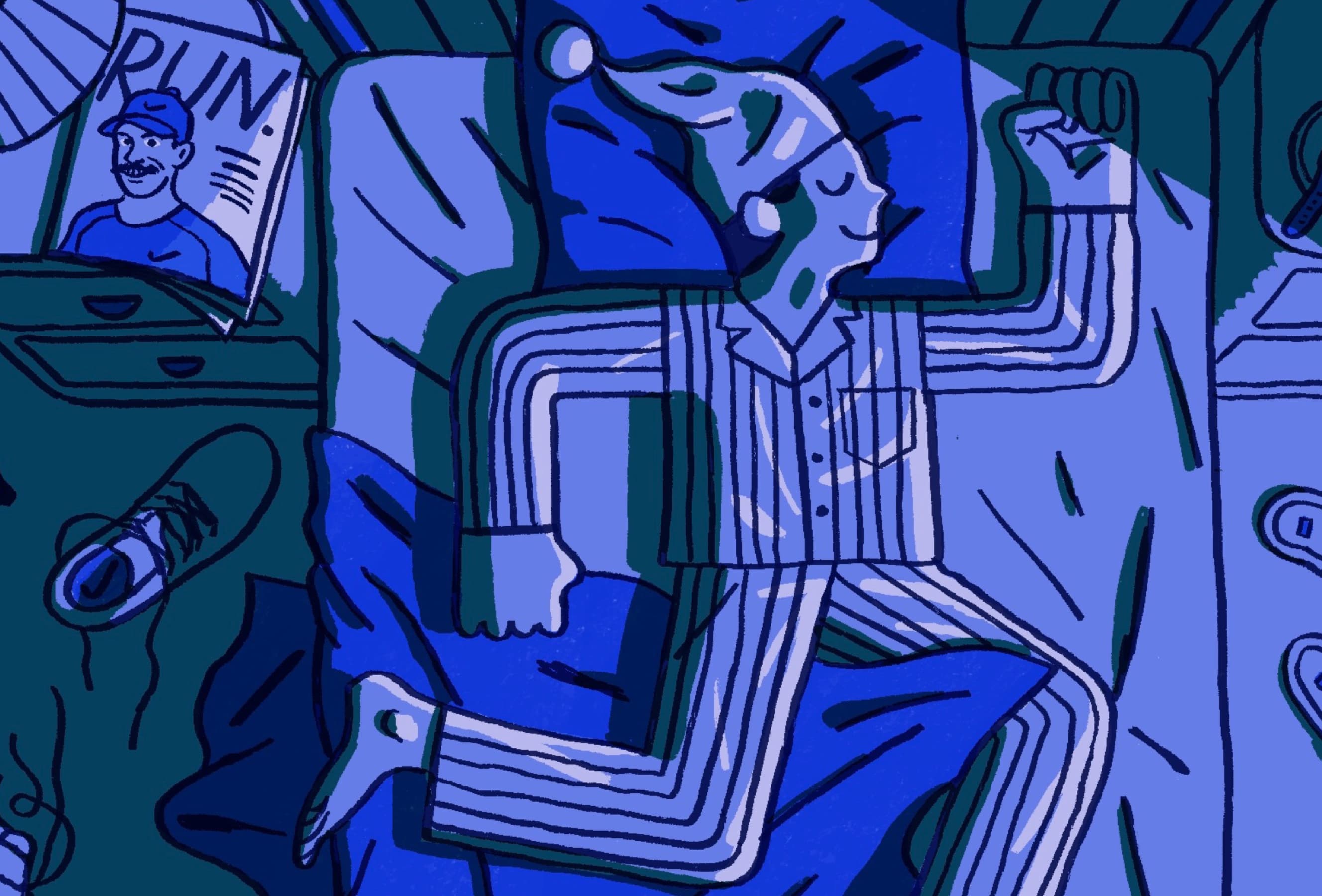Sleep Better Tonight, Run Better Tomorrow
Coaching
Experts say that sleep may be the greatest performance enhancer we have. Here's how to use it to run your strongest.

You may not be a professional runner, but you still spend nearly a third of your day training. Or at least, you should be.
Logging seven to nine hours of sleep is your ultimate training tool, the opportunity to juice your performance batteries, says Cheri Mah, MD, a physician scientist at the UCSF Human Performance Center and a Nike Performance Council member who specialises in sleep and performance in elite athletes. "You can charge your batteries 60 percent with six hours of rest and hit the wall a lot faster", says Dr Mah. "Or you can charge them 80, 90 or 100 percent every night and see what you're really capable of".
Deprive yourself of that sleep and everything crumbles, says Mah. The examples she gives:
01. Your mind won't feel as sharp. Staying up for 24 hours straight produces the equivalent cognitive and motor impairment as a blood alcohol concentration of about .10 percent, higher than the legal limit for driving while under the influence.
02. You could come down with something. Continuously logging six hours or less of sleep makes you four times more likely to catch the common cold than if you were getting seven or more hours of sleep.
03. You may put on weight. Chronic sleep deprivation alters leptin and ghrelin, the hormones that regulate hunger, and can make you more likely to fill up on foods higher in saturated fats and sugar.
However, perhaps a worse revelation for athletes comes from Mah's current research, which suggests that insufficient sleep over multiple days can change your coordination pattern and biomechanics. "This has performance implications, of course, but the other potential implication is that, 'Hey, this person might be more prone to injury risk down the road'", she says.
Given all that, why do 70 percent of American adults not get the recommended amount of sleep on any given night? Because getting good sleep is—like making time for regular exercise and eating our best—hard, says Mah.
The Simple Change
Create a sleep ritual.
The reason many people get into a vicious loop of sleeping six hours or less is because they don't prepare their body for sleep, says Mah. "You can't drive 70 miles per hour on the motorway and suddenly stop any more than you can go hard all day, then suddenly sleep. That's why you need a wind-down routine".
Don't worry, it doesn't have to be complex or long, says Chris Bennett, Nike Running Global Head Coach. "Even having a book next to your bed and reading for five minutes can signal to your body, 'Wait, I know this—it's time to go to bed'". Same if you spend a few minutes journaling, stretching or doing breathing exercises, Mah adds.
Putting yourself in that frame of mind should help you fall asleep faster and sleep deeper and longer, she says. "Like a muscle, you can strengthen your ability to get good recovery at night if you prepare".
"You can't drive 70 miles per hour on the motorway and suddenly stop, any more than you can go hard all day and suddenly sleep".
Cheri Mah
MD, physician scientist at the UCSF Human Performance Center and Nike Performance Council member
More Tips to Move You Forwards
01. Set a bedtime alarm.
"Establishing a regular wind-down routine followed by a regular sleep schedule, where you go to bed and wake at the same time every day, is one of the most helpful shifts for a lot of my athletes", says Mah, who advises NBA, NFL, and MLB teams. "They build in a priority for optimal sleep in their day, just like they do other aspects of their training".
02. Write a to-do list.
Mah often does this each night as part of her sleep ritual. "It helps me process things from the day and know what needs to happen tomorrow, and it may help via cognitive offloading. My mind isn't racing and it's easier to fall to sleep", she says, adding that research shows people who write a to-do list and make it as specific as possible fall asleep faster than those who don't write one.
03. Don't sleep in on weekends.
If you're up at 7am on weekdays then sleep until 10am on Saturdays and Sundays, it's the sleep equivalent of flying from New York City to San Francisco every weekend. After all, your body's internal clock doesn't know to hit 'pause' on Friday nights. Sleep scientists dub this "social jetlag", says Mah, which can result in feeling groggy and sluggish. To feel your best throughout the week, keep your wake-up time consistent. And if the weather allows for it, get morning sunlight to help set your body clock to that routine.